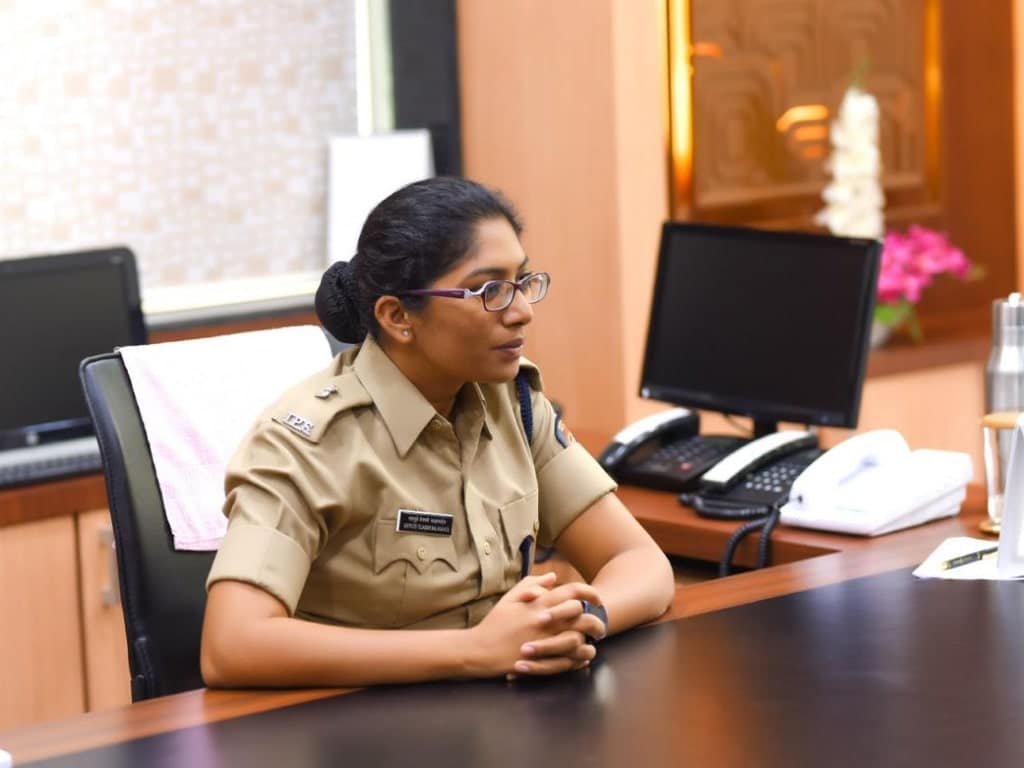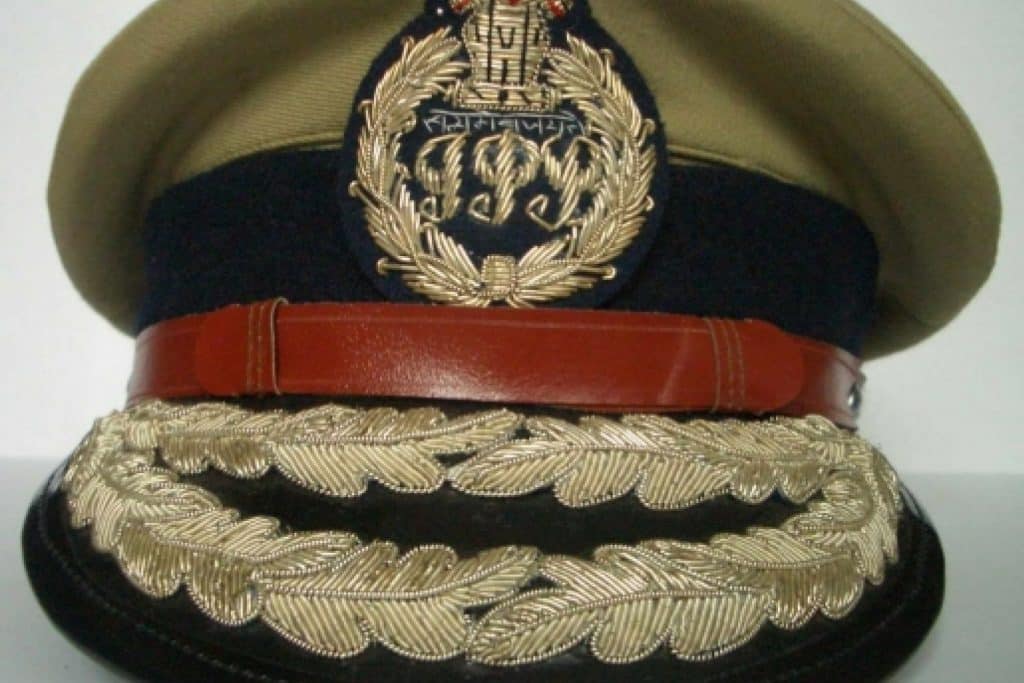How to Become DSP in India (Deputy Superintendent of Police)
12 min read
If you are the one looking for a guide on How to Become DSP in India? Then, buckle up and read this article till the end to get all the information regarding the same. While going line by line in this article you will get to know the roles and responsibilities, eligibility criteria, employment opportunities, agencies to recruit, salary, and allowances that they get after being a DSP.
The post of a Police is very prestigious and reputed. Being a Police officer is a pride for the nation and serving the nation apart from their duty whenever required.
About DSP
DSP, the post is allocated by the State Government after cracking the State Public Service Commission Exam conducted by the respective state. This is the highest-ranked officer after the post of Superintendent of Police or SP.
A DSP must look into the implementation or enforcement of the law, people’s rights and make peace in the society. The aura of the Police is to be dynamic and flexible to take care of all the cases and happening in the society and provide proper guidance and inspection if and when required.
As DSP, they are allotted lots of responsibilities and are accountable to their seniors and the public too with their actions. They are also called an assistant police commissioner. After few promotions, they are promoted to the post of Indian Police Service that is IPS.
Full form of DSP
The Deputy Superintendent of Police is abbreviated as DSP. This is one of the highly prestigious and respected posts at the state level. The Deputy Superintendent of Police or DSP is the head of the Police force in the state and takes all the necessary decisions keeping in mind the state norms and procedures.
How to Become DSP in India
If you want to become DSP in India, you should pass State Level Exam conducted by the State Public Service Commission. After cracking this exam the candidate becomes a DSP in India. He/She is posted as DSP after completion of probationary training.

Now, it is crystal clear that to become a DSP you have to become an IPS officer first. To become an IPS Officer you must qualify for Civil Service Exam (CSE) conducted by Union Public Service Commission. To apply for the UPSC exam you must be eligible for some criteria.
Do you want to know the eligibility criteria to become DSP and apply for UPSC then read it below? Also, you can become a DSP without a UPSC exam. Want to know how? Then, keep reading the article till the end. And, yes you will get to read all about it.
Eligibility Criteria
To become DSP you need to have some requirements. The eligibility criteria are – Nationality, Educational Qualification, Age Limit. Lets us now see the details of each requirement below.
Nationality
The aspiring candidate to become a DSP should be a Citizen of India.
Age Limit
The age limit to be a cadet sub-inspector trainee is 21-25years.
The age relaxation according to a category is listed below.
| Categories | Age Relaxation |
| For SC/ST/OBC | 5 years |
| For Ex-Servicemen | 3 years |
| For NCC Cadet Corps instructor | 5 years |
Educational Qualification
The educational criteria to become a DSP are given below with the marks criteria. The most educational qualification to become a DSP is a graduation degree from any authorized university.
| Education Qualification | Marks |
| 12th Class ( HSC) | The candidate should have an aggregate of 55% from any stream and any authorized university. |
| Graduation/Bachelor’s Degree | The candidate should have a Graduate degree from any authorized university. |
2 Ways To Become A DSP
There are 2 ways by which you can become a Collector of a district.
- A. UPSC Exam
- B. State Civil Service Commission (SPSC)
A. UPSC Exam
As I mentioned above to become a DSP you have to crack the UPSC exam and become an IPS officer first. To apply for the UPSC exam you must acquire the details of the exam. Let us first have a quick overview of the exam and then understand what is UPSC exam, stages of the UPSC?
What is UPSC
To become a Deputy Commissioner of Police (DCP) you need to crack the UPSC- Civil Service Exam(CSE). UPSC is the central agency of India that conducts the CSE exam for qualifying a Deputy Commissioner of Police (DCP) or IPS officer.
UPSC is the All India Service Examination. After qualifying all 3 rounds of UPSC. The main aim of Government officials is to serve the people of the country.
UPSC Exam Details
UPSC Exam is conducted in three stages namely- Preliminary Exam( CSAT Test) comprising of two papers which are objective type, Mains Exam which includes 9 papers which are subjective type. After qualifying the two phases you are eligible for the Interview Process.
UPSC Exam Overview
| Exam | UPSC -CSE Exam |
| Authorized Body | Union Public Service Commission |
| Level | National |
| Exam Stages | 1. Preliminary 2. Mains 3. Interview |
| Eligibility Criteria | Nationality – Indian Age Limit – Between 21 to 32 years ( General Category) Age limit for OBC – 35 Years Age limit for ST/ST – 37 Years Educational Qualification – The candidate must have completed graduation in any field. |
| Number of Attempts | 6 Attempts (General Category) For OBC – 9 ST/SC – No limit |
Eligibility Criteria
The eligibility criteria for the UPSC exam are explained more in detail below.
Age Limit
The minimum age to appear for UPSC- Civil Service Exam is at least 21 years. The age limit to become a DSP officer for the general category is 32 years, for OBC is 35 years and SC/ST is 37 years respectively.
Educational Qualification
The basic qualification to appear for the UPSC exam is graduation in any of the fields.
DSP Physical Requirements
Height
| Categories | Height |
| For Men | 168 cms |
| For Women | 155 cms |
Weight
The weight of the candidate depends upon age and height.
Chest
The minimum chest should be 84 cms and with the expansion of 5 cms.
Eyesight
6/9 or 6/6 should be the eyesight for a good vision.
Physical Efficiency Test
The physical efficiency test includes the following
- 100 meters run in 15sec
- 800mtrs run 170 seconds
- Shot put (7.2kgs) 5.60mtrs
- Long Jump 3.80mtrs
- High Jump 1.20mtrs
DSP Poilce Exam Syllabus
Now it is time to move towards the exam pattern and syllabus of UPSC. The exam is conducted in 3 stages.
The process for the UPSC is as follows.
- Preliminary exam
- Mains exam
- Interview process
Let us understand all the 3 exams more in detail.
1. Preliminary exam
The preliminary exam has 2 papers that are conducted. Each paper has 200 marks a total of 400 marks. The question paper is in two languages namely English and Hindi. The duration of the paper is 2 hours each paper. This examination carries a negative marking of the one-third penalty. That is for each wrong answer there is a negative marking of 0.33 marks. This paper has objective-type questions which comprise multiple-choice questions. This exam is conducted in the month of June.
The Preliminary exam consists of two papers – Paper 1 & Paper 2. The details of both papers are listed below.
| Paper | Type | Number of Questions |
Marks | Negative Marking |
Duration |
| Paper 1 | Objective | 100 | 200 | 0.33 | 2 hours |
| Paper 2 | Objective | 80 | 200 | 0.33 | 2 hours |
Syllabus for the Preliminary Exam
Paper 1. Current affairs
Here, you need to have very good general knowledge and good general studies of current events going on at the National and international levels. You need to read newspapers to gain general knowledge.
Paper 2. Civil Service Aptitude Test (CSAT)
This paper comprises competencies related to comprehension, interpersonal, and communication skills. Hereby analytical ability, logical reasoning, and mental ability are also tested. Also, there are questions related to decision-making and problem-solving.
The syllabus for both the papers of the Preliminary exam is listed below.
| Paper 1 | Indian History General Science Indian Politics Current Events General Issues Indian Geography World Geography Social Development Economic Development |
| Paper 2 | Communicational Skills Intrapersonal Skills English Skills English Comprehension Language skill that is chosen by the candidate Decision-making skills Problem-solving ability Mental Ability Basic Numeracy |
2. Mains exam
After qualifying for the preliminary exam the candidates are eligible for the second round that is the mains exam. Generally, Mains Exams are conducted in the month of January. After the mains exam, the candidate will be liable for the process of the interview. Mains Exam has the descriptive type of questions. The mains exam is conducted by UPSC in the month of October.
The Mains exam includes a total of 9 papers that are listed below. More details are given below.
Mains Exam Details
| Paper | Syllabus | Marks | Duration |
| Essay | Essay on any topic | 250 | 3 hours |
| General studies 1 | Indian Heritage, Culture, Geography |
250 | 3 hours |
| General studies 2 | Constitution, Governance, Social Justice |
250 | 3 hours |
| General studies 3 | Technology, Environment, Disaster Management |
250 | 3 hours |
| General studies 4 | Ethics, Integrity, and Aptitude |
250 | 3 hours |
| Optional subject 1 | Any | 250 | 3 hours |
| Optional subject 2 | Any | 250 | 3 hours |
| Paper 1 | Indian Language (Anyone of the language) |
300 | 3 hours |
| Paper 2 | English language | 300 | 3 hours |
Syllabus for Mains Exam
The total marks for this examination are 1750 marks. Though the Mains exam consists of 9 papers, out of these 9 papers, only 7 papers will be taken for the merit ranking. For the remaining two papers the candidate should obtain the minimum marks as set by UPSC. This exam includes a total of 9 papers namely as listed below.
| Paper | Syllabus | Marks | Duration |
| Essay | Essay on any topic | 250 | 3 hours |
| General studies 1 | Indian Heritage, Culture, Geography |
250 | 3 hours |
| General studies 2 | Constitution, Governance, Social Justice |
250 | 3 hours |
| General studies 3 | Technology, Environment, Disaster Management |
250 | 3 hours |
| General studies 4 | Ethics, Integrity, and Aptitude |
250 | 3 hours |
| Optional subject 1 | Any | 250 | 3 hours |
| Optional subject 2 | Any | 250 | 3 hours |
| Paper 1 | Indian Language (Anyone of the language) |
300 | 3 hours |
| Paper 2 | English language | 300 | 3 hours |
Essay
To write an essay on any one topic. You can choose the option of your choice from the given options.
General Studies 1 – Indian Heritage & Culture
- Indian Culture
- Modern Indian History
- History of the world
- Society
- Geography
- Events, Forms, and Effects on Society
General Studies 2 – Indian Constitution & Indian Politics
- The Constitution Of India
- Amendment Procedure
- The Political System
- Central Government And Administration
- The Electoral Process
- Administrative Law
- Central And State Government Privileges
- Public Services
- Social Welfare And Social Legislation
- Control over Public Expenditure
General Studies 3 – Science & Technology
- Energy
- Computer and Information Technology
- Biotechnology
- Disaster Management
- Nuclear Policy Of India
- Space Technology
- Environment
- Security
- Agriculture
- Economy
General Studies 4 – Ethics & Human Interface
- Ethics and Human Interface
- Aptitude
- Attitude
- Integrity
- Emotional Intelligence
- Public Service Values And Ethics in Public Administration
- Probity in Governance
Optional Subjects
There are 2 Papers on Optional Subjects. The candidate is supposed to choose any 1 optional subject out of 48 total options. The 2 papers are combined and are of a total of 500 marks.
You need to be very careful while choosing your optional subject. You must know which optional subject will work best for you.
English & Language Papers
The pattern of both papers is almost the same in nature. The English language is a compulsory language. Whereas, other languages can be chosen from a list of languages.
The pattern of the paper is as follows.
- Essay – 100 Marks
- Comprehension – 60 Marks
- Precis Writing – 60 Marks
- Translation from English – 20 Marks
- Translation from Chosen Language – 20 Marks
- Grammar – 40 Marks
Please Note: The candidate is free to choose his writing language as English, Hindi, or any other language listed in the Indian Constitution.
3. Interview
When you qualify for the interview round you become IPS Officer. During the review subject knowledge, personal skills, as well as Mental Ability, is tested. After cracking the final round of interviews a candidate is qualified to become an IPS officer. He is given training and then posted according to the requirements. This interview process for the selected candidates is conducted in the month of March and the result of the interview round is announced in the month of May.
The candidates who have cracked the interview round get selected for the training purpose. The training process to become a DSP in India starts in the month of September.
Syllabus for Interview
- This is basically a question and answers session
- This exam is of 275 marks.
- The interview is nothing but a Personality Test.
- Even current affairs and General knowledge questions can be asked for an interview.
Books & Study Material
To crack the UPSC examination you need to have General Knowledge. For this, you need to keep on reading the newspaper. Hindu Newspaper, Jagran Josh, Economic Times, and Indian Express are something I would suggest to enhance your general knowledge and current affairs.
Other lists of books that I would suggest are as follows.
- Indian Polity For Civil Service Examination -Indian Polity by Laxmikanth
- Indian Year Book
- Indian Economy by Ramesh Singh
- Oxford Geography Atlas
- A Brief History of Modern India
- Indian Art And Culture
- Fundamentals of Geography (NCERT)
- Concise History of Modern India by Sujata Menon
- Facets of Indian Culture
- The Constitution of India by P.M Bakshi
- Indian Economy by Mishra & Puri
Procedure of Selection
The step-by-step procedure of selection to become a DSP in India is as below.
Step 1: To crack the written exam which is conducted by UPSC that consists of the Preliminary exam & the Mains exam.
Step 2: To qualify for the Physical Efficiency Test and Medical checkup.
Step 3: To crack the interview process and get selected for the training of DSP.
Appointment of DSP
Another way to become a DSP is through State Public Service Commission Exams. To get appointed as DSP, you have to crack the State Police Service Exam. The exams are held in three stages.
First Phase
The first phase is Prelims that are objective types. It consists of two parts that are the General studies and the other one is CSAT exams. Each exam is for 2hours.
Second Phase
The second phase is the mains examination that is a subjective type. It consists of 9 papers each of three hours.
Third Phase
The third phase is the Interview that is the final round in which questions from the different niches are asked including mental ability, aptitude, reasoning, and current affairs. Once you get selected for the DSP post you will be getting a good salary along with the allowances. After few years of work and few promotions, you will be promoted to IPS.
B. SPSC Exam
Now, let us understand How to become DSP Without UPSC. This is a second way to become a DSP without becoming an IPS officer. For that, you need to crack SPSC. Let us understand what is SPSC?
What is SPSC
SPSC stands for State Public Service Commission. It is a Civil Service Exam that is conducted by each particular state in India. For example, in Maharashtra, the State Civil Service Exam is known as MPSC Exam. Have a check on what is the name of your state civil service exam.
As far as the syllabus of this exam is concerned the pattern and syllabus of the exam are very similar to the UPSC exam. The only addition to the syllabus is the state history. The total number of papers in this exam is less than that of the UPSC Exam.
Promotion to DSP
After few promotions as DSP at the state level, you will be promoted to the Indian Police Service that is IPS and can be transferred to any part of India rather than any particular state.
The candidate who has attained the Sub-Inspector post after few promotions can get the post of DSP.
Employment Sector
As a DSP you can only work for the State government. After getting promoted to IPS you will be working for the Central Government too. The State conducts State Public Service Commission exam to get employed as Deputy Superintend of Police.
Agencies Responsible for Recruitment
DSPs can only be hired by Central or State Governments. No private authorities have the potential to recruit the DSP. The Central and State governments conduct an exam to hire the police for different designation.
The respective websites carry all the information and notification about the exams. The candidate must get themselves updated with all the exam notifications so that they can apply for the same.
Role & Responsibilities of DSP
As a DSP, you have to be concerned for the safety of the people and take all the responsibilities for the welfare of the public.
Some of the responsibilities of the DSP are mentioned below.
- He/She take complete in-charge of the district in maintaining law and order.
- He/She keep eye on the police station that is under their jurisdiction.
- He/She are concerned for the civil rights of the public.
- He/She looks into the crimes that happen in the district and take the needed steps to resolve the cases.
- He/She works in a team with their subordinate to maintain peace in the department.
- He/She has to take care of the safety and security of the politicians by giving them the required police force.
- He/She has to work with their superior like DGP or DCP to solve any case.
Salary of DSP
The DSP Police Salary and other police services are listed below.
| Job Profile | Salary In INR |
| DSP/Assistant Commissioner | Rs. 15,600 – Rs. 39, 300 per month |
| Sub- Inspector | Rs. 9,300 – Rs. 34, 800 per month |
| SP/ASP | Rs. 70,000 – Rs. 1,09,200 per month |
| Circle Inspector | Rs 15,600 – Rs. 39,100 per month |
Benefits & Allowances
The benefits a DSP gets at the time of his service are mentioned below.
- The residence is provided to DSP and other staffs
- A vehicle is provided along with the driver to reach the workplace
- In case of any tragedy, the pension will be given to the spouse
- At the time of official tours, the arrangement is done in 7-star hotels.
- Electricity and Telephonic bills are given by the Government.
- They also get domestic helpers like cooks and security guards.
Conclusion
To conclude, this was all about How to Become DSP in India. Hope this article will guide you How to become DSP after 12th in a proper way by guiding you with all the necessary details. If you have any doubts about this simple guiding article you can ask me by commenting in the comment box.
Share Is Caring – Share the article if you liked it!






